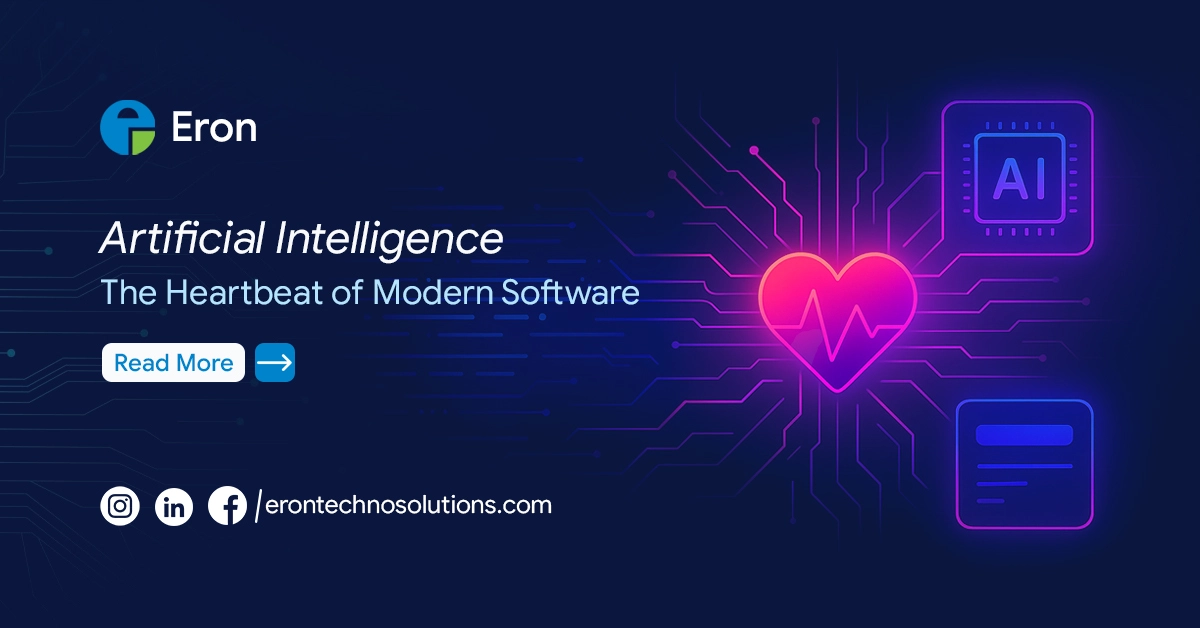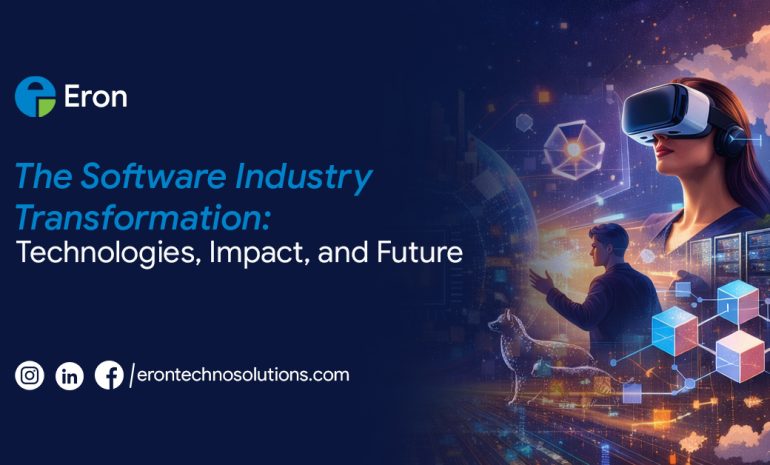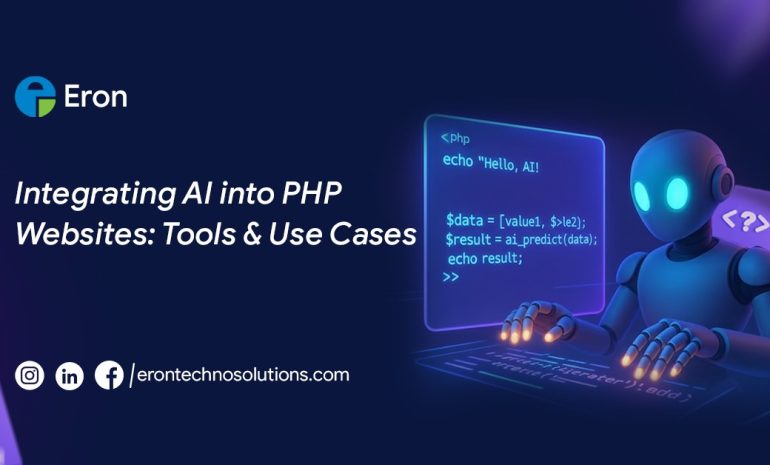There was a time when Artificial Intelligence (AI) felt like a futuristic add-on. A chatbot here, a movie recommendation there — nice to have, but not essential. Fast forward to 2025, and everything has changed.
AI is no longer the “extra feature.” It has become the core layer of modern software, silently powering the apps and tools we use every day.
Why AI is Changing the Game
Traditional software worked on fixed rules: do this if that happens. It was predictable but limited. The world, however, isn’t predictable. Customers expect personalization, businesses demand real-time insights, and data keeps growing at lightning speed.

This is where AI steps in:
- It learns from patterns.
- It adapts to new situations.
- It makes smarter decisions than static rules ever could.
- It helps businesses scale efficiently without adding extra human resources.
- It uncovers hidden insights from massive datasets that humans could easily miss.
Everyday Examples We Already See
Your email app highlights the messages that matter most.
Streaming platforms recommend what you’re most likely to watch tonight.
Virtual assistants remind you of tasks before you even think of them.
Smart inventory systems predict stock shortages before they happen.
Financial software can detect unusual transactions instantly, preventing fraud.
These aren’t gimmicks — they’re AI at the core of the software experience.
What It Means for Businesses
For companies, adopting AI isn’t just about staying trendy. It’s about staying relevant.
- Automating repetitive work saves time and cost.
- Personalized software keeps customers loyal.
- Smarter systems create a real competitive edge.
- Faster decision-making with predictive insights improves business outcomes.
- Enhanced innovation — AI helps teams experiment and test new ideas more quickly.
The businesses that embrace AI now are the ones shaping the future.
The Road Ahead
Of course, AI comes with challenges: making sure data is clean, avoiding bias, and keeping systems secure. But the potential is far greater than the risks. Once software learns to adapt and evolve, there’s no going back to “one-size-fits-all” solutions.
Other important considerations for businesses:
Ethical AI Practices: Ensure AI systems are fair, transparent, and accountable.
Integration with Legacy Systems: Modernizing older software to include AI can maximize ROI.
Continuous Learning: AI models improve over time, so ongoing monitoring and updates are key.
User Trust: Educating users about AI-powered decisions increases adoption and satisfaction.
Final Thoughts
Artificial Intelligence has officially moved from the sidelines to the center. It’s not just powering features — it’s powering the future of software itself.
At Eron Techno Solutions, we believe the next generation of applications will be built on intelligence, adaptability, and innovation. And AI will be at the heart of it all.
AI is no longer optional. It’s the difference between software that merely works and software that thinks, adapts, and grows with your business.


